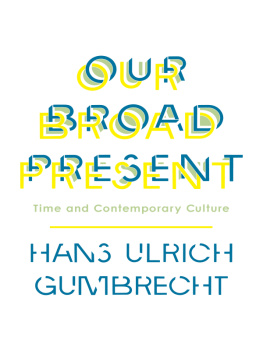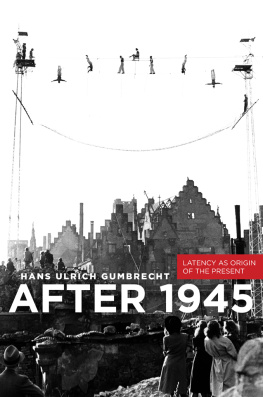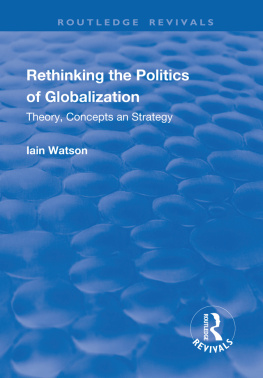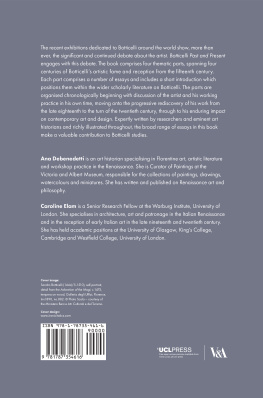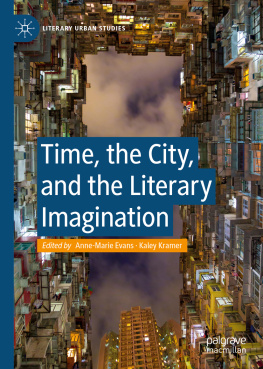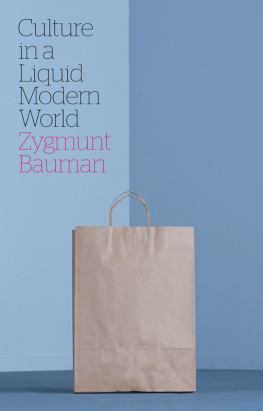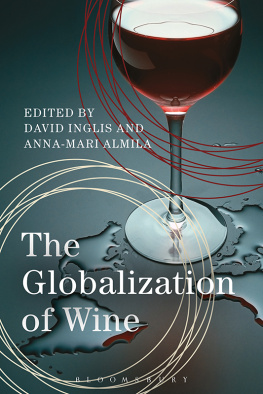OUR BROAD PRESENT
Insurrections: Critical Studies in Religion, Politics, and Culture
Insurrections: Critical Studies in Religion, Politics, and Culture
Slavoj iek, Clayton Crockett, Creston Davis, Jeffrey W. Robbins, Editors
The intersection of religion, politics, and culture is one of the most discussed areas in theory today. It also has the deepest and most wide-ranging impact on the world. Insurrections: Critical Studies in Religion, Politics, and Culture will bring the tools of philosophy and critical theory to the political implications of the religious turn. The series will address a range of religious traditions and political viewpoints in the United States, Europe, and other parts of the world. Without advocating any specific religious or theological stance, the series aims nonetheless to be faithful to the radical emancipatory potential of religion.
OUR BROAD PRESENT
Time and Contemporary Culture
Hans Ulrich Gumbrecht
COLUMBIA UNIVERSITY PRESS
NEW YORK
COLUMBIA UNIVERSITY PRESS
PUBLISHERS SINCE 1893
New York Chichester, West Sussex
cup.columbia.edu
Copyright 2011 Suhrkamp Verlag
Copyright 2014 Columbia University Press
All rights reserved
E-ISBN 978-0-231-53761-2
Library of Congress Cataloging-in-Publication Data
Gumbrecht, Hans Ulrich.
Our broad present: time and contemporary culture / Hans Ulrich Gumbrecht.
pages cm.(Insurrections: critical studies in religion, politics, and culture)
Includes bibliographical references and index.
ISBN 978-0-231-16360-6 (cloth: alk. paper)ISBN 978-0-231-16361-3
(pbk.: alk. paper)ISBN 978-0-231-53761-2 (e-book)
1. Space and time. 2. Civilization, Modern21st century. I. Title.
BD632.G86 2014
190dc23
2013041364
A Columbia University Press E-book.
CUP would be pleased to hear about your reading experience with this e-book at .
Cover design: Jennifer Heuer
References to Web sites (URLs) were accurate at the time of writing. Neither the author nor Columbia University Press is responsible for URLs that may have expired or changed since the manuscript was prepared.
CONTENTS
, Stagnation: Temporal, Intellectual, Heavenly; and In the Broad Present have been translated from the German by Henry Erik Butler.
A rather famous colleague of mine (recently retired), whose books, arguments, and intellectual elegance I have admired ever since beginning my academic career, often says of himself, with seeming modesty, that, in all his life, he has had only one good idea. Then, after an artful pause to gauge the effect of his words, he changes his meaning by adding that this is hardly so serious a matter, since most people dont even have that much. Here I would like to follow the example of the aforementioned party, whose name is Hayden White. In a good forty years of research and writing, my one idea (which has, I hope, had some impact) has taken the form of a hardheaded insistence that the things-of-the-world, however we encounter them, also possess a dimension of presence. This is the case despite our quotidian and scholarly focus on interpretation and meaningand even if we almost always overlook the dimension of presence in our culture.
By presence I have meantand still meanthat things inevitably stand at a distance from or in proximity to our bodies; whether they touch us directly or not, they have substance. I addressed this state of affairs in Production of Presence, which appeared in German as Diesseits der Hermeneutik. The book received this titlewhich may be rendered Hermeneutics of This Worldbecause it is my impression that the dimension of presence might deserve a position of priority relative to the praxis of interpretation, which ascribes meaning to an object. This is not the case because presence is more important than the operations of consciousness and intention, but rather because, perhaps, it is more elementary. At the same time, the German title betrays something resembling the mild oedipal revolt of a man already over fifty. Relegating interpretation and hermeneutics to a restricted academic terrain (so to speak) was my smalland perhaps even pettyrevenge against an overwhelming tradition of intellectual depth, which I had found embodied in some heroes of profundity among my academic fathers. Because of my background and (dis)inclinations, I had never felt entirely adequate to such depth.
Almost naturallyshould, indeed, this be possible in the intellectual worldand without any particular programmatic objective, my intuition of presence developed in three directions. In 1926: Living on the Edge of Time, which preceded Production of Presence, I had asked what consequences attention to the dimension of presence might hold for our relationship to the past. An essay on the beauty of athletics addressed the same question with regard to aesthetic experience. Finally, in The Powers of Philology I tried to show that the dimension of presence invariably factors into encounters of a textual kind.
Afterwardand I still have not abandoned this hopeful ambition entirelyI wanted to see if I would enjoy the good fortune of striking upon a second idea. (In this I was prompted by Jorge Luis Borges and imagined that what is intellectually decisive does not consist of discovering or producing ideas so much as stumbling upon and grasping for themintercepting ideas and giving them form.) Unfortunately, I have not yet caught a second idea, and all the projects I have pursued in recent years are clear extensions of my intuition concerning presence. I have attempted to describe Stimmung, the relationship we entertain with our environment, as a presence-phenomenonthe lightest touch that occurs when the material world surrounding us affects the surface of our bodies. At the moment, I am working on a book about the decade following the Second World War because I believe that in this period a form of latency predominateda presence, to be understood as a kind of stowaway, that can produce effects and radiate energy while escaping efforts to identify and apprehend it.
After the books on presence had appeared, friends whose opinions I take very seriously surprised me by urging me to reflect systematically on, and write about, the existential and, indeed, the ethical consequences of these publications. The task, I suspect, would have demanded too much of meor did I, half-consciously, feign modesty only to hide a visceral disinclination to ethics and other kinds of prescriptive self-help literature? At any rate, my reservations were hardly consistent. As attested by the chapters of the book at hand (to say nothing of other works), I have gladly been induced, time and again, to analyze contemporary social and cultural phenomena from the perspective of presenceor at least to sketch out the lines such an inquiry might assume. There were occasions and exhortations to do so behind every part of this book, even if I always sought a way out by pleading an utter lack of competency or adducing some other reason. It is both an obligation for, and a privilege of, humanists to practice risky thinking. That is to say, instead of subordinating ourselves to rational schemes of evidence and the constraints of systems, we scientists of the mind (

